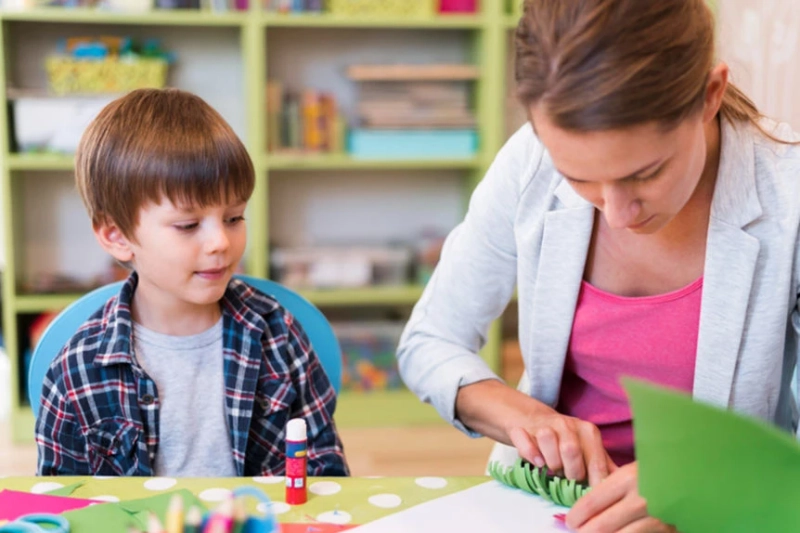The early years of a child's life are a crucial period of growth and development. During this time, their brains are rapidly absorbing information and forming connections that will shape their future learning experiences. Preschool activities play a vital role in facilitating this development, as they provide young children with opportunities to explore, interact, and learn in a structured yet playful environment. In this article, we will delve into the significance of preschool activities in enhancing the quality of learning in kids and setting a strong foundation for their educational journey.
Holistic Development
Preschool activities encompass a wide range of experiences, from creative arts and physical play to cognitive exercises and social interactions. These activities promote holistic development by addressing various aspects of a child's growth, including cognitive, social, emotional, and physical development. Engaging in activities that involve problem-solving, fine motor skills, and emotional expression allows children to develop a well-rounded set of skills that are essential for their overall development.
Cognitive Stimulation:
Preschool activities are designed to stimulate young minds and foster cognitive growth. Simple activities like puzzles, sorting games, and building blocks enhance critical thinking, spatial reasoning, and problem-solving abilities. By engaging in these activities, children learn to analyze, strategize, and make decisions – skills that lay the foundation for future academic success.
Language and Communication Skills
Language acquisition is a central aspect of early childhood development. Preschool activities promote language and communication skills through storytelling, rhyming games, and interactive discussions. These activities not only expand a child's vocabulary but also help them articulate their thoughts and ideas effectively. Strong language skills are essential for effective communication and future literacy.
Social Interaction and Emotional Intelligence:
Preschool activities provide an ideal setting for children to interact with their peers and develop social skills. Through group activities, role-playing, and collaborative projects, children learn to share, cooperate, and negotiate. These interactions contribute to the development of emotional intelligence, helping children understand and manage their emotions, as well as empathize with others.
Creativity and Self-expression
Creative activities such as painting, drawing, and imaginative play encourage self-expression and allow children to explore their creativity. These activities enable children to think outside the box, experiment with ideas, and express their feelings in a nonverbal manner. Fostering creativity at an early age supports innovation and problem-solving skills in the future.
Preparation for Formal Education
Preschool activities serve as a bridge between home and formal education. They introduce children to routines, rules, and structures that are present in educational settings. This familiarity eases the transition to kindergarten and primary school, making the adjustment smoother and more enjoyable for young learners.
Confidence and Self-esteem:
When children engage in activities and see the results of their efforts, it boosts their confidence and self-esteem. Whether they complete a puzzle, create a piece of art, or successfully participate in a group activity, children gain a sense of accomplishment. Positive experiences contribute to a healthy self-image and a belief in their own capabilities.
Cultural Awareness and Diversity
Preschool activities often include exposure to various cultures, traditions, and perspectives. This exposure cultivates an early understanding and appreciation of diversity. Children learn to respect and celebrate differences, laying the foundation for open-mindedness and inclusivity in their future interactions.
Parent-Child Bonding
Preschool activities aren't limited to the classroom. Many activities can be extended to the home environment, promoting parent-child bonding. When parents engage in activities with their children, it strengthens the parent-child relationship and provides opportunities for shared experiences and quality time.
Joyful Learning
Perhaps one of the most significant advantages of preschool activities is that they make learning fun and enjoyable. The engaging and interactive nature of these activities sparks curiosity and enthusiasm in children. When learning is associated with enjoyment, children are more likely to develop a positive attitude toward education that lasts throughout their lives.
Also Read : Importance of Preschool Activities for Enhancing the Quality of Learning in Kids
Conclusion:
The importance of preschool activities in enhancing the quality of learning in kids cannot be overstated. These activities foster holistic development, cognitive growth, language skills, social interactions, and emotional intelligence. Moreover, they prepare children for formal education, boost confidence, promote creativity, and encourage a positive attitude toward learning. As educators, parents, and caregivers, it is our responsibility to provide children with a nurturing environment rich in activities that promote their overall growth. By doing so, we contribute to their success not only in school but also in their future endeavors.



